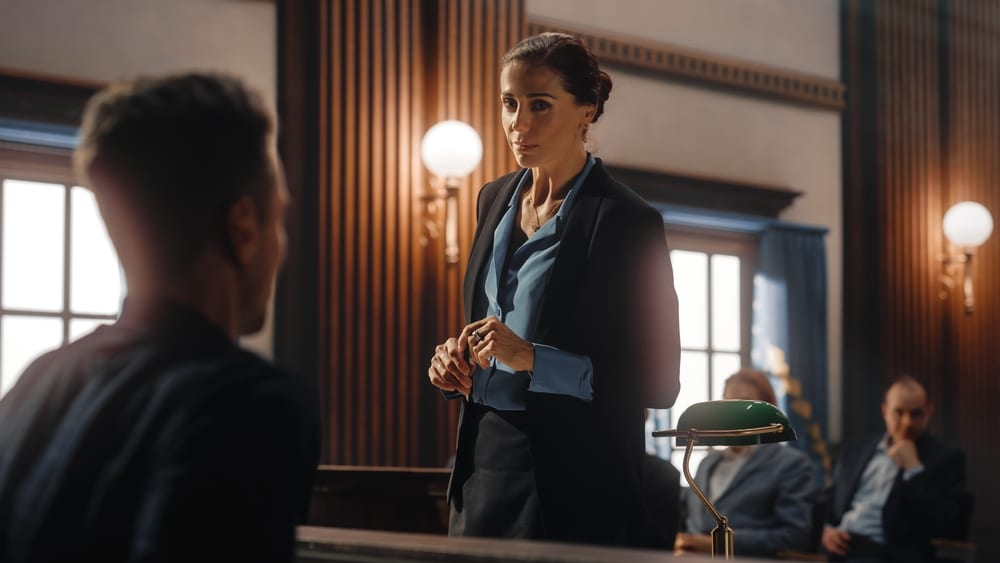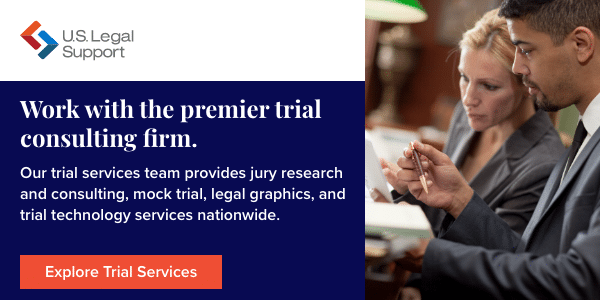Voir Dire to Qualify an Expert Witness

Before jurors can deliberate on a case after an expert witness testifies, the expert witness must first complete voir dire. French for “Speak the truth,” voir dire is a questioning process judges and lawyers utilize to determine a person’s fitness to participate in a trial.
An expert witness’ experience with voir dire is not the same as that of jurors, however. While jurors are mostly examined for bias, expert witnesses are also tested for their competence to speak on matters related to the case at hand.1 Expert witnesses play a crucial role in legal proceedings by giving context to scientific evidence and providing an expert opinion that can influence the outcome of a case. Their expert report is often pivotal in the court’s assessment of the validity of the subject matter and the relevance of underlying facts about the case.
Voir dire is essential to ensuring expert testimony is relevant, accurate, and trustworthy. Let’s examine the voir dire process, explore some key questions to ask, and determine how to qualify an expert witness during your next case.
Importance of Voir Dire for Expert Witnesses
It’s essential to conduct voir dire as any outside professionals must be sufficiently vetted before taking the stand. Verifying the qualifications of an expert witness helps ensure that experts presented in a trial court are credible and qualified to offer expert witness testimony. Direct examination allows an attorney to confirm an expert witness’s credentials and explore potential biases.
Without properly assessing an expert witness prior to a trial, you risk:
- Allowing someone to speak who may not hold the credentials they claim
- Misleading the judge, jury, and others involved in the case
- Diminishing your credibility by selecting an unqualified witness
To prevent these and other potential pitfalls of hearing an unqualified opinion, it’s pertinent to question expert witnesses on their background and credentials during the voir dire process.
Key Questions to Ask During Voir Dire
It’s crucial to cover all your bases when questioning your expert witness. Remember, the outcome of the case will, at least partially, be influenced by the contents of their testimony. If nothing else, the voir dire process can also help prepare your expert witness for testimony. Therefore, be sure to query them about the following.
Qualifications and Expertise
A qualified expert can provide reliable information that meets the court’s standards, significantly influencing the legal proceedings. You’ll need to know that your witness has actually done the schooling, study, and work necessary to be considered an expert on their given subject. To ensure they’re qualified for the job, ask confirming questions, such as2:
- What is your occupation and place of employment?
- What title do you presently hold at your job?
- What academic degrees do you have? When and where did you earn them?
- What other special degrees, licenses, and training do you have in your field?
- How long have you been licensed and practicing in your field?
- Do you have board certification qualifying you for your position?
Past Experience and Testimony
An expert witness’s work history, experience, education, and credentials are all critical in determining the admissibility of their testimony. If they’ve testified on other related cases in the past, it could be considered a conflict of interest. Even personal relationships can complicate an expert witness’s right to testify.3 To uncover this necessary information about their past, ask your expert witness2:
- How many times have you given testimony in court as an expert in your field?
- What is your publication history?
- Do you hold any memberships in professional organizations related to your profession?
- Do you teach—now or in the past—and where?
- What is your relationship with state agencies, law enforcement, defense attorneys, and similar figures who could be deemed to influence your expert witness testimony on a case?
Potential Bias and Objectivity
Expert witnesses receive compensation from a singular party during a legal case, but they are expected to remain impartial regardless. To ensure their opinions are based on fact and free from bias, ask4:
- Does compensation as an expert witness encourage you to give testimony in favor of my client?
- Do you still remain active in your primary career field?
- Do your particular experience and credentials influence your opinion in a way that other, similar experts may not share?
Strategies for Effective Voir Dire
Try the following strategies to ensure that an expert witness has the qualifications, knowledge, and unbiased mindset necessary to testify in court.
Developing a Questioning Plan
This is generally a line of questions, not unlike those listed above, that get to the heart of any potential biases or gaps in knowledge on the part of the expert witness. A regular questionnaire might contain 30 or so questions asking about the expert’s experience, life, and credentials.
The answers to this questionnaire are generally submitted to the judge alongside the expert’s Curriculum Vitae (CV) or resume for further scrutiny.4
Observing Body Language and Responses
When questioning the expert witness, keep your eyes (and ears) peeled for5:
- Abnormal body movements
- Changes in posture
- Persistent reorientation
- Shrugs
- The tendency to avoid eye contact
- Contorted facial expressions
- Auditory clues—such as fluctuating pitch and tone, hesitancy speaking, and odd word choices
Addressing Red Flags
If you do find inconsistencies in your witness’s answers or any other concerning issues during voir dire, you can address them by:
- Confirming their credentials with the issuing institutions
- Inquiring into past business, personal, and legal relationships
- Replacing them with another, more trustworthy expert witness
Remember: If you find holes in your expert witness’s story during voir dire, there’s a high chance the other party will during cross examination as well. Be confident that any expert you plan to call to the stand is as qualified as they say they are, as misrepresentation could call the validity of your entire case into question.
Legal Standards and Criteria for Expert Witness Qualification
The use of expert witnesses in court cases is governed by the Federal Rules of Evidence 701-706. In short, they state:
- Expert witnesses can be used to help judges and juries better understand evidence.
- Expert opinions must be based on facts and data.
- No relevant aspect of the expert witness’s life is free from legal scrutiny.
- Experts must provide their written report prior to giving testimony.
- The expert witness is required to defend themself against all reasonable objections, questions, and inquiries into their character and testimony.
There’s no cut-and-dry formula for qualifying an expert witness during voir dire. For the highest chance of success and achieving a favorable outcome in court, ensure your expert is knowledgeable, honest, and unbiased in delivering their opinion.
Ensure the Expertise and Qualification of Your Witness with U.S Legal Support
Expert witnesses are expected to give unbiased, professional opinions on a trial’s events. That’s why, during a process known as voir dire, they are subjected to personal, legal, and experiential scrutiny.
A relevant and informed expert witness can make or break your case, and that’s why you should practice voir dire with help from U.S. Legal Support and our trial services division, TrialQuest. We offer a range of trial services—including witness preparation and voir dire consulting—that can tighten up your case and elevate your chances of a favorable outcome.
Contact us now for effective, strategic litigation support when you need it.
Sources:
- Cornell Law School. voir dire. https://www.law.cornell.edu/
- Forensic Magazine. Qualifying the Expert Witness: A Practical Voir Dire. https://www.chm.uri.edu/
- Orange County Bar Association. February 2019 Ethically Speaking – When Can Experts Be Disqualified Based on Prior Relationships?. https://www.ocbar.org/
- New York Law Journal. EXPOSING AN EXPERT WITNESS’ BIAS DURING CROSS-EXAMINATION: COLLATERAL ATTACK. https://www.gairgair.com/
- American Bar Association. 11 must-dos from a voir dire master. https://www.americanbar.org/

Editoral Policy
Content published on the U.S. Legal Support blog is reviewed by professionals in the legal and litigation support services field to help ensure accurate information. The information provided in this blog is for informational purposes only and should not be construed as legal advice for attorneys or clients.


